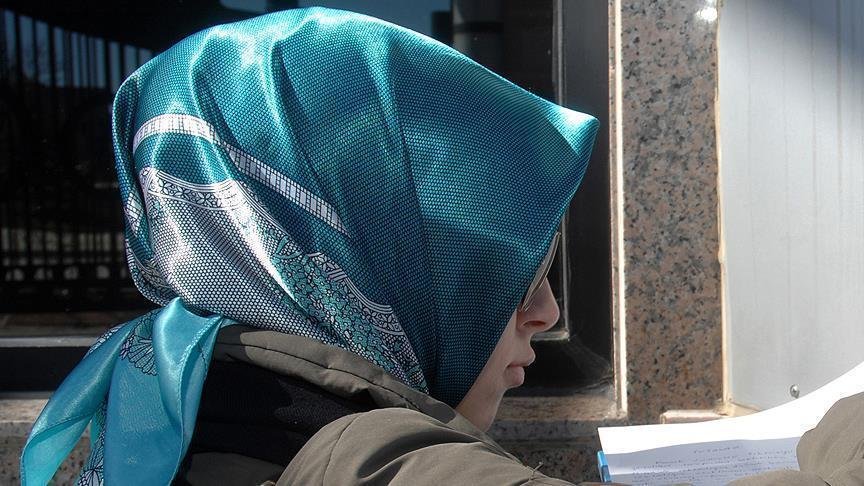
Prof.Dr. Ali Murat Yel
One would not believe the things that a president would say in a doorstopper volume of a collection of interviews that French President Francois Hollande gave two journalists (Gerard Davet and Fabrice Lhomme) from Le Monde during his presidency. The title says it all: Un président ne devrait pas dire ça (A President Should Not Say That) and one cannot be sure whether the president had been serious or if the 61 interviews were casual conversations among close friends. The book came out last week and caused quite a stir in France since it contains seemingly private thoughts of M. Hollande on various subjects such as his dislike of Nicolas Sarkozy, the previous president that he beat in the 2012 election, his repugnance of certain magistrates of the French judiciary, immigration, his relationships with women and his regrets, and Muslims living in France. Everyone is aware of the fact that France has been in a problematical relationship with Islam in recent decades, especially with the public visibility of Islamic clothing like l’affaire du foulard (the scarf affair) and the recent attempts to ban the burkini on French beaches. There are even investigations on “Why the French Don’t Like Headscarves” (John R. Bowen, 2006, Princeton University Press) when they cover Muslim women’s heads for religious reasons but they are totally acceptable when worn by the ordinary French women as foulards for esthetical reasons.
From the book that just came out, it is understood that a part of French society has had a problem with Islam and the president admits it unreservedly and resiliently without any doubt. Perhaps the diplomatic language would require a more mindful approach when dealing with sensitive issues like the faith of a specific group. Yet, we understand that Monsieur Hollande repeats his sincere opinions time and again without leaving anything to the imagination. Everything he says on Islam, and more specifically on Muslim women, is not just a Freudian slip. His problem probably stems from the fact that France is a staunch secular country and the French identity strictly depends on this understanding of secularism. In other words, to be French, one must speak French and be secular above all else. The French Republican tradition and legacy is rooted in the principle of laïcité à la française, which is an extreme militant secularism that attempts to create a society in which religion is imprisoned in the private life of citizens. Along with the language, this militant laïcité defines French citizenship and in cases of violation of this principle, it is feared that the “values of the Republic” are under threat. For Hollande, since “Islam wants to assert itself within the French society and wishes to be recognized as a religion”, which implies public visibility and demands like opening new mosques, it threatens laïcité.
France is home to some 8 million Muslims, the largest Muslim population in Europe, and this issue seems to be the hottest theme in the upcoming presidential election. It seems that the “problem” with Islam will be taken up and probably mistreated by the candidates regardless of their political orientation. In the past, the right wingers would demonize immigrants and religious minorities but today it seems the leftists have realized the importance of unemployment, which is currently at 10 percent, and they have begun to take a stand against “foreigners”. Foreigners are not only the people who have migrated to France recently but also the people who were born in France, yet whose religion, culture or understanding of laïcité are “foreign”.
Hollande’s attacks mainly target French Muslim women. He believes that the Muslim women are enslaved by their veils and they must prefer freedom by taking off their headscarves. In this way they would not only become French but also appropriate their place in French society. Then comes a shocking statement: “La femme voilée d’aujourd’hui sera la Marianne de demain” (The veiled woman of today will be the Marianne of tomorrow), a reference to the treasured figure of a woman bearing the tri-color who symbolizes liberty, reason, and the staunchly secular French Republic. Probably he recently read the famous work of Roland Barthes (Mythologies, (1957) Seuil) and assumes that the Muslim woman would take the place of young black soldier, on the cover of the magazine Paris Match, who salutes “with his eyes uplifted, probably fixed on a fold of the tricolour”. Similarly, the Muslim woman, like Marianne, would faithfully serve her country without being discriminated against if and when she liberates herself from the male dominance under the guise of headscarf. He insists that all citizens must subscribe to the same (republican) values in the public sphere in order to be integrated into society. Yet, he seems to forget another important issue: the principles and values of a multicultural society. Who knows, one day a veiled Marianne would rouse the French people to action but this time not against foreigners or immigrants but those who try to destroy the values of pluralism. Finally, targeting Islam and Muslims, M. Hollande must understand, will not help him in gaining popularity but makes him a person, in his ex-girlfriend’s (Valérie Trierweiler) words, “froid, sans coeur, totalement dépassé par les événements, calculateur, parfois méchant, enfermé dans une bulle” (cold, heartless, overwhelmed by the events, calculating, sometimes nasty, shut in a bubble). He should remember that opportunism does not always work as a tool to win elections, let alone the hearts of “sans-dents” (without teeth) and other marginalized groups in France.
The writer is an anthropologist and teaches in the school of communication at Marmara University in Istanbul.
Courtesy: Anadolu Agency

